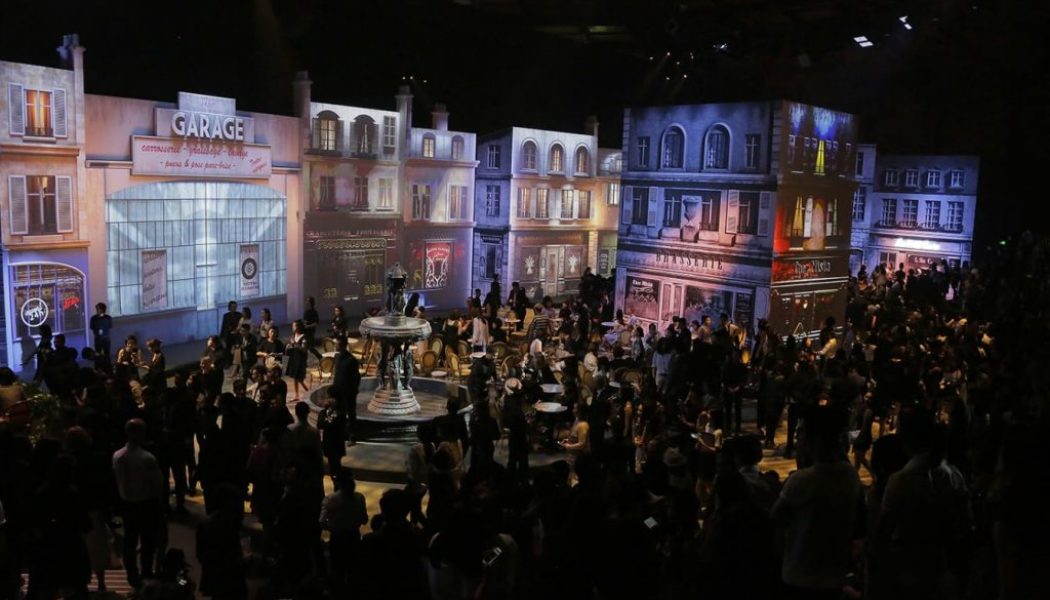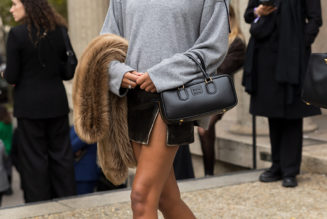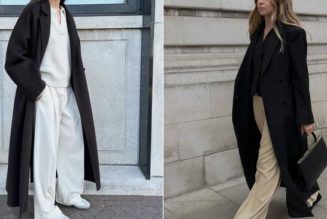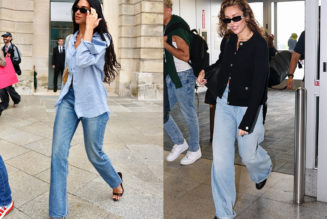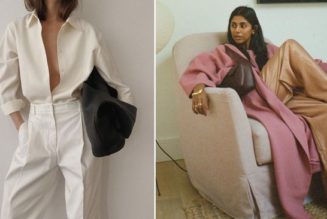Bloomberg TV interviewed me recently on the new codes of luxury with a particular focus on the Chinese market. In the interview, I elaborated on why many Western luxury brands are losing their influence in China to emerging local competitors. One major impacting factor is Generation Z, which is the driving force behind the rapid transition of Chinese client preferences.
The difficulty for Western luxury companies lies in the dramatic differences in age and preferences of Chinese clients and the disproportionate share of Gen Z consumers compared to other major regions. While most Western brands focus on Gen X and to some extend on Gen Y (millennials), the Chinese market is significantly younger, with the average age of luxury purchasers being 29 years old. This has led to a generational gap with Western markets.
Despite their undeniably vibrant allure, Western luxury brands often stumble when navigating this lucrative yet challenging landscape. Chinese Gen Z are the wealthiest customer generation ever to enter the market, and they have an optimism that is much higher than that seen in the Western world, meaning a higher willingness to spend money. Their hard-working attitude also makes them want to reward themselves with luxury goods and services.
At the same time, Chinese Gen Z are increasingly changing their purchase preferences from Western to Chinese brands across categories, from luxury automotive to fashion, from fine jewelry to wines, and beyond. This corresponds with a strong patriotic sentiment.
But the preference shifts go far beyond national pride. Many Western brands fail to meet five critical expectations that Chinese Gen Z have from their luxury brands:
Digital Innovation: For China’s Gen Z, luxury is an immersive digital-first experience, not merely a transaction. Brands like Louis Vuitton that provide a sophisticated online retail experience across Chinese platforms have found traction. However, many Western brands falter in offering a truly engaging online experience and underestimate the extraordinary expectations of Chinese clients in terms of digital customer service and responsiveness. When we analyzed the WeChat performance of many Western luxury brands, just a handful had even acceptable performance across 12 important dimensions such as chat, check-out experiences, or online-to-offline integration.
Authentic Brand Narratives: Brand stories with a cultural context resonate deeply with Chinese Gen Z. They seek authenticity, which is often missing when Western brands transplant their narratives without adapting to local sensibilities. Chanel, for instance, has engaged with this young demographic successfully by aligning its brand story with Chinese culture, specifically through their Métiers d’Art shows in Shanghai and Beijing.

Chanel hosted a Métiers d’Art show in Beijing in 2016. Photo: Chanel
Social Responsibility: This new generation of Chinese luxury consumers values social responsibility and is quick to hold brands accountable for their societal and environmental impact. Western luxury brands often struggle to communicate their stance on these issues effectively, resulting in disengagement.
Celebrity Partnerships: The sway of local celebrities on Gen Z’s buying decisions is significant. Brands that focus only on Western celebrities often struggle. Louis Vuitton’s collaboration with popular Chinese actor Kris Wu (prior to his scandal and arrest) is a prime example of effective local celebrity endorsement. On the other hand, the outcry over Gucci’s Year of the Tiger campaign in 2022 — which depicted tigers as “rich kid pets” — and Year of the Rabbit campaign in 2023, which included rabbit fur in its collection despite the brand’s public ban on fur, underscore how any mismatch of cultural values and social values risks an immediate backlash.

Gucci scrambled to remove products after animal rights activists called out the use of rabbit felt in its Year of the Rabbit capsule. Photo: Gucci
Personalized Offerings: Chinese Gen Z seek individuality and exclusivity. They appreciate unique, personalized options, something often missing in the offerings of Western brands. Hermès, with its limited-edition collections exclusive to China, is a brand that understands this desire for individual expression.
In comparison, many Western luxury car brands underestimate the rapidly shifting expectations of Chinese Gen Z towards in-car entertainment, such as karaoke, or the increased use of cars as a protective pod for lunchtime naps. Not offering these necessary product features puts global brands at a disadvantage and causes customer preferences to shift toward Chinese brands.
And if preferences can shift in the automotive world, where cars are still the ultimate expression of individuality, they can happen in any category. Take beauty and sportswear, for example. Chinese brands like Perfect Diary and Li-Ning have captured audiences by mastering digital platforms, creating culturally relevant narratives, and showcasing a clear sense of social responsibility.
Perfect Diary has become a success story by leveraging social media platforms and local influencers to engage with Gen Z consumers. The beauty label has built a powerful brand narrative around Chinese culture, aligning their products with popular Chinese symbols and traditions.
Meanwhile, premium athletic wear brand Li-Ning taps into national pride through its marketing strategies, promoting a clear “Made in China” narrative that resonates with young Chinese consumers’ sense of identity. The brand’s collaboration with Chinese pop star Jackson Yee further amplifies its appeal among Gen Z.
Western luxury brands must strive to understand and cater to Chinese Gen Z’s unique preferences if they wish to secure their place in China’s luxury landscape. These consumers seek more than just products; they want their brands to reflect their values, engage with their culture, and provide a digital-first, personalized experience. Navigating these expectations will be the key to thriving in this promising yet demanding market. It’s an urgent call to action before it’s too late.
Named one of the “Global Top Five Luxury Key Opinion Leaders to Watch,” Daniel Langer is the CEO of the luxury, lifestyle and consumer brand strategy firm Équité, and the executive professor of luxury strategy and pricing at Pepperdine University in Malibu, California. He consults many of the leading luxury brands in the world, is the author of several best-selling luxury management books, a global keynote speaker, and holds luxury masterclasses on the future of luxury, disruption, and the luxury metaverse in Europe, the USA, and Asia.
Follow him: LinkedIn: https://www.linkedin.com/in/drlanger,
Instagram: @equitebrands /@thedaniellanger
